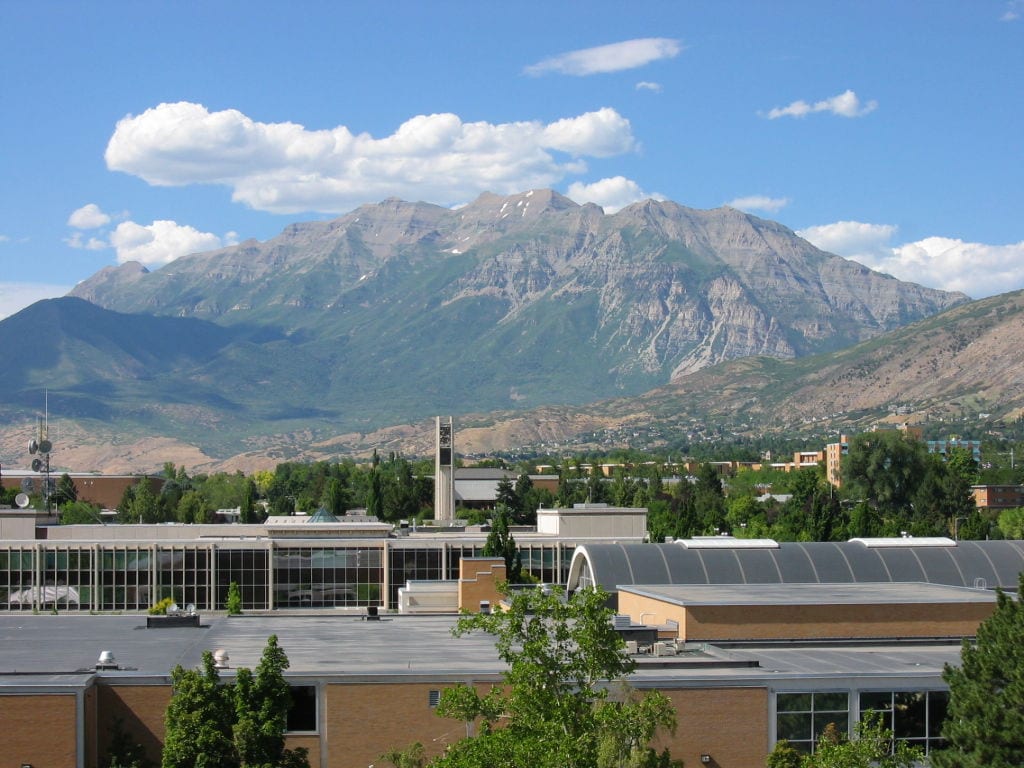
An overwhelming majority of Millennials—also known as “Generation Y” and loosely defined as those born between the late ’80s and late ’90s—support equality for the LGBTQ community. Depending on the polls one checks, this number is as high as 70 percent; however, even given these numbers and the fact that many Millenials are now attending college, not every institution of higher education in the United States provides a safe haven for gay, lesbian and transgender students. According to a recently released study, Provo-based Brigham Young University is one of the poorest rated schools for how it treats LGBTQ students.
The Princeton Review released its annual rankings of U.S. universities, and according to this year’s study, BYU ranks as the sixth-most hostile environment for LGBTQ students in the entire country. The study grades collegiate institutions on an array of criteria, including campus beauty, financial aid offerings, student demographics, friendliness towards certain groups, and other standards. For the 2015 rankings, Princeton Review staff members surveyed about 136,000 students at 380 schools nationwide. The students were each asked 80 generalized questions about “their school’s academics, administration, student body, and themselves,“ and the qualitative student responses were then converted into quantitative empirical data used for school-to-school comparisons.
Despite the highly publicized compromise legislation that was crafted and passed in the 2015 Utah legislative session which afforded some protections to the LGBTQ community—which by default would include LGBTQ students—autonomous institutions and religious organizations (BYU included) are not bound by any anti-discrimination ordinances.
In a lecture given at U.C. Santa Cruz titled “History of Homosexuality at Brigham Young University”, Connell O’Donovan addressed the interesting circumstances of not only being an LGBTQ student at BYU but also a faculty member.
“BYU offers a fascinating view because it is caught between two worlds: the rigidly orthodox religious world of Mormonism and the questioning academic world,” O’Donovan said. “This tension provides interesting dilemmas for the people who study, teach and work there, especially for those who are Lesbian, Gay, or Bisexual.”
The LDS Church contends that same-sex attraction isn’t a sin, but acting on those feelings is considered sinful. BYU’s website states, “One’s stated same-gender attraction is not an Honor Code issue. However, the Honor Code requires all members of the university community to manifest a strict commitment to the law of chastity. Homosexual behavior is inappropriate and violates the Honor Code. Homosexual behavior includes not only sexual relations between members of the same sex, but all forms of physical intimacy that give expression to homosexual feelings.”
In an article from the Salt Lake Tribune, BYU’s official spokeswoman, Carri Jenkins, referred to a statement on BYU’s website when pressed about the ranking.
“BYU will respond to homosexual behavior rather than to feelings or attraction, and welcomes as full members of the university community all whose behavior meets university standards,” Jenkins said. “Members of the university community can remain in good standing if they conduct their lives in a manner consistent with Gospel principles.”
The honor code also states: “Students must be in good Honor Code standing to be admitted to, continue enrollment at, and graduate from BYU. The term “good Honor Code standing” means that a student’s conduct is consistent with the Honor Code and the ideals and principles of The Church of Jesus Christ of Latter-day Saints. Excommunication, disfellowshipment, or disaffiliation from The Church of Jesus Christ of Latter-day Saints automatically results in the loss of good Honor Code standing.”
The BYU student Honor Code forbids many other behaviors for faculty and students—not just LGBTQ students. The code lists a variety of restricted subjects, including facial hair, specific clothing, premarital sex, and the consumption of coffee, alcohol and caffeinated tea. Upon admission to the school, all students are required to abide by the Honor Code standards whether on or off campus.
You can find out more about this study and other studies comparing collegiate institutions here: http://www.princetonreview.com/college-rankings/best-colleges
You can also read BYU’s Honor Code in its entirety, here:
http://registrar.byu.edu/catalog/2010-2011ucat/GeneralInfo/HonorCode.php



